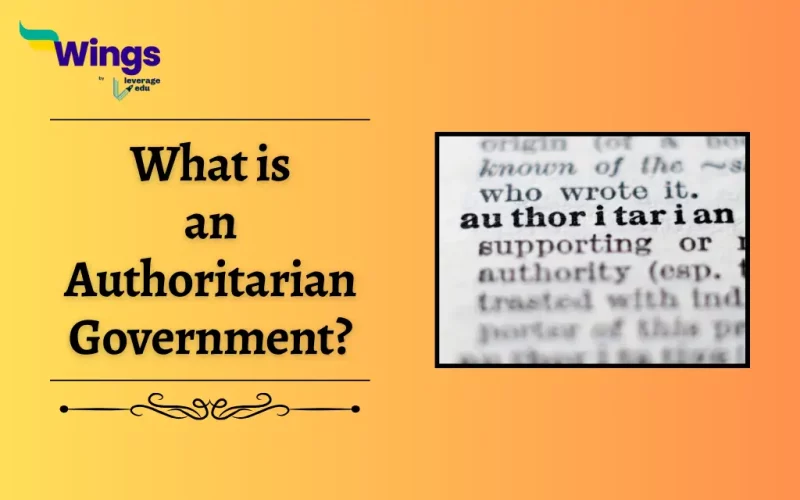An Authoritarian Government has a system of governance marked by centralized power. Moreover, the power is typically vested in a single leader or a small group, which limits checks and balances. Additionally, it usually includes curtailing individual liberties like Freedom of Speech and Press, hence suppressing political dissent through censorship or coercion, manipulating elections to maintain control, and restricting political diversity. Read on to learn more in detail about an Authoritarian Government.
State-controlled media, weak rule of law, and arbitrary decision-making are common. Security forces frequently play a dominant role in enforcing authority, while independent civil society organizations may face severe regulation or prohibition. In addition, this stands in stark contrast to democratic systems that prioritize individual rights, political diversity, and accountability.
Table of Contents
Authoritarianism’s origins lie in complex socio-political contexts. It can stem from historical traumas like economic crises, foreign interventions, or past dictatorships, creating a desire for stability and order. Moreover, opportunistic leaders exploit these fears and discontent, thus gradually dismantling democratic institutions.
Economic inequality and insecurity also play a role, as people seek strongman figures promising solutions. Additionally, Nationalism and security concerns can further legitimize authoritarian rule. Ultimately, authoritarianism is a response to perceived chaos or instability, where charismatic leaders consolidate power, suppress dissent, and limit freedoms to maintain control, usually at the expense of democratic values and institutions.
Must Read: Who was the First Governor General of India?
Furthermore, Resistance against authoritarianism is crucial for protecting Democracy and human rights. Key elements include:
- Civil Disobedience: Peaceful protests, strikes, and nonviolent resistance.
- International Pressure: Diplomatic and economic sanctions.
- Grassroots Movements: Organized civil society efforts.
- Media and Information: Independent reporting.
- Legal Challenges: Pursuing justice through the courts.

Authoritarianism concentrates power, limiting individual freedoms. Democracy fosters participation and civil liberties, with checks and balances. Moreover, Totalitarianism tightly controls all aspects of life. Monarchies vary, with hereditary rule but differing degrees of power. Hence, each system has distinct implications for governance, rights, and societal values.
Here this case studies illustrate diverse manifestations of authoritarianism globally:
- China: Ruled by the Communist Party, tightly controls media, suppresses dissent, and lacks free elections.
- Russia: Under Putin’s leadership, limits political Pluralism, controls media, and restricts opposition.
- North Korea: The Kim dynasty exercises absolute power, with no political diversity and state-controlled media.
- Belarus: Lukashenko’s regime suppresses opposition, manipulates elections, and limits civil society.
- Iran: Theocratic regime restricts civil liberties, controls media, and holds rigged elections.
Criticism
Criticism of authoritarian governments primarily centers on their fundamental disregard for individual freedoms and democratic values.
- These regimes tend to suppress political opposition and restrict free expression, often resorting to censorship, imprisonment of dissidents, and control over the media to maintain their grip on power.
- The lack of political pluralism and genuine accountability can lead to a culture of fear and apathy, stifling citizens’ participation in the political process.
- Human rights abuses, including arbitrary arrests, torture, and the marginalization of minority groups, are often reported, inviting international condemnation.
- Economically, centralized control can hinder innovation and hinder economic growth, as decisions are frequently made for political gain rather than based on market dynamics.
- In essence, criticism of authoritarian governments centres on their infringement on essential rights, lack of transparency, and the potential for social and economic stagnation, which ultimately undermines the well-being and progress of their citizens.
Eleanor Roosevelt rightly quotes: “In the end, the ultimate result of authoritarianism is the suppression of individual freedom.” Thus raising our voices against it is the need of the hour.
Quiz
Results
Related Blogs
Lastly, we hope you liked our blog and gained an understanding of the Authoritarian Government. Moreover, you may even read more blogs and empower yourself with knowledge regarding Civics and Polity!
 One app for all your study abroad needs
One app for all your study abroad needs
















